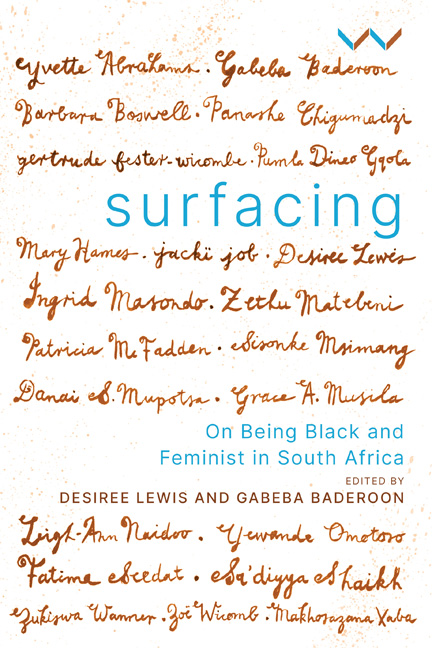Book contents
Chapter 10 - Conversations About Photography with Keorapetse Mosimane, Thania Petersen and Tshepiso Mazibuko
Published online by Cambridge University Press: 15 April 2021
Summary
I am interested in how a series of photographs by different producers, with varied approaches that have no obvious thematic or aesthetic links with each other necessarily, can be grouped together in this essay form to suggest a coherence in theme and argument. I am also interested in how photographs with minimal narrative framing can constitute an ‘essay’ in which it is the reader or viewer who generates primary meaning. It is my belief that very often the conventional visual essay engages in interpretation that suppresses the profound and diverging meanings that can be generated by the reader.
This essay focuses on photographs as relational platforms. It asks of the reader to (re)consider what photography is. It also encourages active engagement from the reader in the relations and conditions related to the production, circulation and viewing of photographs. It is a provocation to the reader whose focus lies on reading the ‘expert’s’ analysis as authoritative and definitive as though such an analysis lacked a subjective voice or agenda.
By drawing together the unrelated works of three photographers – Keorapetse Mosimane, Tshepiso Mazibuko and Thania Petersen – I urge the reader both to follow each photographer's vision and vantage point, as well as to consider elements that are beyond the surfaces of the photographs.
Surfacing
The relationship between photography and the ‘surface’ has been a subject of concern, debate and experimentation since the invention of the medium. Some have focused on the camera's extraordinary ability to capture, expose and make visible the surface of things often invisible to the eye; and claims exist that photography has the ability to go beyond surfaces and capture essences and other existences. Others have focused on the material expression of the (printed) photograph, its sensitive and malleable surface. In this essay, I consider photographs that speak to some of these aspects.
Debates about surfaces in relation to photography have also found obvious resonance in questions about how ways of being, relating and narrating are shaped by racialised, gendered and classed lenses. The histories of photography are deeply entangled with colonial and imperial projects and with bodily surfaces, especially the skin and hair. Deemed integral for racial classifications, photography was central in providing visual evidence (and fictions) about racialised difference and essence.
- Type
- Chapter
- Information
- SurfacingOn Being Black and Feminist in South Africa, pp. 138 - 154Publisher: Wits University PressPrint publication year: 2021



